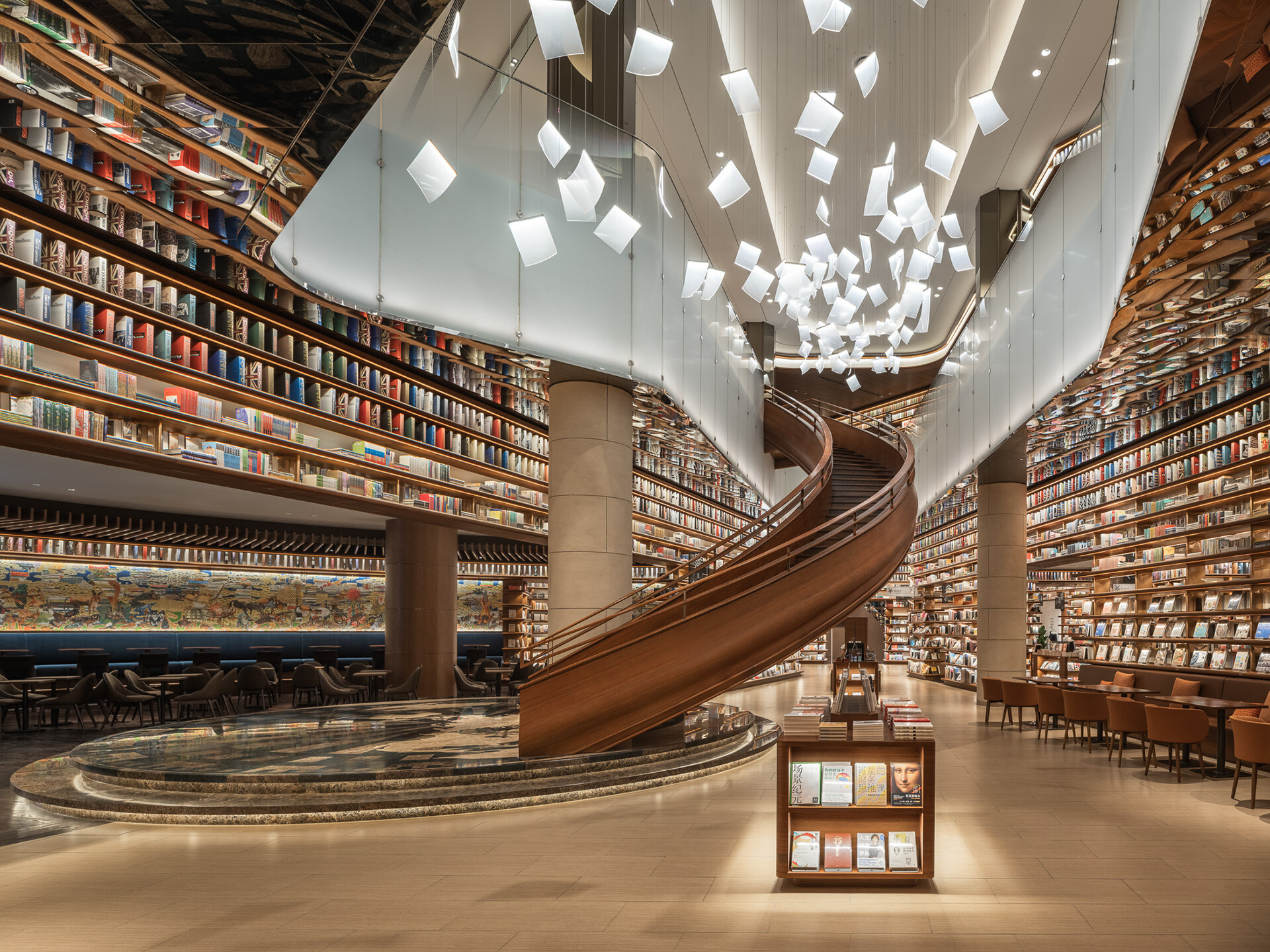The clubgoers surrounded the two musicians in the middle of the dancefloor, then pogoed to the drums and writhed with the synths. Under a glittering disco ball, Shouwang Zhang donned sunglasses and turned his Roland SP-555 sampler’s dials, before tapping the keys of his pocket piano, then singing ethereally into a vintage harmonica microphone. He was playing catchy yet dissonant songs from his band White+ at Beijing nightclub Bye Bye Disco on July 20. Drummer Wang Xu sat at a kit across from the synths and thunderously pounded, a stark contrast to Zhang’s airy soundscapes. While White+ has been around for more than a decade, the side project remains a considerable departure from the accessible indie rock Zhang writes in Carsick Cars, his main claim to fame.

White+’s Wang Xu surrounded by the crowd at Bye Bye Disco in Beijing. Photo by Lil Cany 小叶.
“I don’t think a lot of nightclubs have performers setting up a drum kit like Wang Xu’s. It brings a bit of rock and roll feel to the club,” says Zhang about the intimately unconventional shows on White+’s 2024 China tour.
It’s been a busy summer for Zhang. Carsick Cars have been among the Chinese indie rock scene’s best known exports since they opened for legendary American underground rockers Sonic Youth in Europe back in 2007. After that came albums, then line-up changes, and, more recently, a return to the band’s original trio. They released Aha, their fourth album, on July 18 and will tour in August. In fact, Zhang is one of a few notable late 2000s Chinese underground rockers launching eagerly awaited tours this summer. Nanjing-via-Beijing post punks P.K.14 and Beijing synth rockers Nova Heart are selling out slickly operated mid-size venues like Fulang Livehouse (福浪) in the Chinese capital. It’s a far cry from these bands’ scrappy origins in unlicensed and unscrutinized puny dive bars in the wake of the 2008 Olympic boom, when China was swiftly becoming more international and its distinctive nascent underground music scene turned heads among the world’s top rock tastemakers.

Shouwang Zhang at the controls for White+. Photo by Lil Cany 小叶.
Now these bands are returning to the road, each for the first time in several years, after vastly watched variety show The Big Band (乐队的夏天 ), which debuted in 2019, made indie rock mainstream in China (both Nova Heart and Carsick Cars competed on the series). The fans who streamed that show can now turn out in droves to see their favorite indie rockers live, because the zero-COVID policies that made arranging gigs all but impossible are long over. Also promising: British shoegaze legends Ride played four Chinese cities this summer, a rarity after a 2019 tax hike deterred established foreign bands from touring the mainland.
But Zhang isn’t sure live music has rebounded in China. Speaking to RADII shortly after a viral Sixth Tone article about a slew of canceled festivals, he said: “I think right after COVID finished there was an explosion of live shows. People were really eager to go. But now, especially last year and this year, touring has become very hard because less people are going to shows.”
The Big Band’s popularity led to an influx of both festival crowds and big commercial venues. A vicious cycle ensued for bands, says Zhang, because they’ve been hit with higher “pay-to-play” guarantee fees to perform at these venues, making tickets pricier, and making young concert goers — now widely cash-strapped and underemployed — more choosy.
One of Zhang’s labelmates at groundbreaking indie imprint Maybe Mars has a different analogy for China’s current music industry: a pyramid. The guitarist, who asked to be quoted anonymously so he could speak freely, spoke during a recent interview at the Maybe Mars office, which is tucked in a quiet traditional Beijing hutong courtyard. “The top bands always have a lot of chances to play, and earn lots of money. But for bands at the bottom of the pyramid, it’s very hard,” the guitarist said on a muggy afternoon, while smearing some herbal TCM ointment on a fly bite a few centimeters away from the tattoo of a blue rotary phone on his forearm. He was accompanied by Michael Pettis, a renowned American economist who founded Maybe Mars and music venue D-22 (considered China’s CBGB) in 2006. Pettis rode up through the hutongs on his bicycle, and upon arrival was greeted with a few barks from his dog, Iggy (who, Pettis notes, has appeared in more music videos than any pup in China). When the guitarist mentioned how steep guarantees have become, Pettis cussed and said “I hate that. D-22 never charged bands. If nobody came, we lost money. Not them. How can you afford to pay the same guarantee as a famous band?” Later, Pettis and the Maybe Mars guitarist griped about how small entry-level venues that nurtured emerging talent have withered across China.

P.K.14 performing at Fulang Livehouse. Photo by Xiao Sun.
Venues were indeed more abundant and diverse when P.K.14 formed, something singer Yang Haisong misses dearly. Year-old midsize Fulang Livehouse is the only suitable place for a band of P.K.14’s stature to play these days in Beijing, but Yang wishes there were several more in the capital. He spoke to RADII a day after P.K.14’s show there in July — where he wowed the audience by stomping, kicking, and tossing his microphone from one hand to the other, even swinging it by its cable. Behind him the band traversed highlights from their 20-year catalogue, along with 4 new songs from an LP due by year’s end, inspired by anxiety about AI. The frontman said it is easier than ever for P.K.14 to sell tickets for such shows, but he sympathizes with younger bands disadvantaged by the “pyramid” structure described by the Maybe Mars guitarist.
Still, Yang commented that venues like Fulang operate at a much higher standard than what he contended with at the beginning of his career. Nova Heart frontwoman Helen Feng is even more upbeat, calling China’s current venues “World class. The audience has expanded tenfold, the transportation has gotten easier, and the stage crews are more professional.”

P.K.14 lead singer Yang Haisong. Photo by Xiao Sun.
“Official media like the China Performance Industry Association say the market recovery is quite good” since COVID, explains Fulang Live House founder and manager Huang Xin. Even though Beijing has a dearth of venues in Yang’s view, Huang says live houses are opening up across China because officials are keen to develop tourism and there is market demand, which in turn attracts investors.
However, Feng did encounter some challenges this summer when working on the most ambitious stage setup of Nova Heart’s career, including metal masks that gleamed under elaborate lights and lasers (this increased ambition is fitting for a band that won second place on The Big Band last year). Feng says the band had to finance that huge production themselves, adding “I think in China, these days as opposed to ten years ago, people have become a lot more risk averse.” Feng, who studied economics in university, says that cautiousness is due to “a perfect storm” of economic, political, and cultural factors.

Nova Heart show off their ambitious costumes and stage design. Photo by 管静鹏/Guan Jingpeng/nickname JPG.
The cultures of performing and gig-going are also very different than when these bands were last on the circuit. Yang says some of the younger musicians he now meets grew up in China’s economic prime, without the parental pressures of his youth. “They are playing music just for fun, not to rebel against something. Rock and roll should be more dangerous,” he said, chuckling.
Shouwang Zhang is even more shocked by the audience’s generational divide. Especially the current pressure to play sets at a fixed time or risk complaints — younger audiences bring expectations of an experience more closely resembling a night at the cinema than a show at a rowdy rock club. Stranger still: while touring with another band, up-and-coming indie rockers Backspace, the aforementioned Maybe Mars guitarist was shocked by some patrons who arrived early only to buy merch, and didn’t even stay for the show. Indeed, Yang feels some audience members prefer to take photos and videos and treat indie rock like a trend.
But when Feng looks at the rest of the audience, she’s not concerned with any posers just in it for the merch. Instead she focuses on the members of a new generation falling in love with the genre. Now that gig-halting pandemic lockdowns are behind us, she loves singing to crowds that have clearly changed. “Greed as a virtue has been replaced by minds searching for something different… Look forward, stop comparing, stop trying to quantify things based on better or worse, and you will see that the future is indeed bright. Because more people are just open to ideas than ever before. They are not mystified [by] Western culture or blinded by nationalism. They are just open. Isn’t that amazing?”

A fan captures Nova Heart’s immersive show on their phone. Photo by 管静鹏/Guan Jingpeng/nickname JPG.
And she’s not only inspired by this next generation, but also the one after that. A wider post-The Big Band audience means, unlike the predominantly student age crowds at their early gigs, some show-goers now bring their kids to see Nova Heart.
She says: “I think exposure to this culture through media is coming at a time when a lot of parents are realizing that their childhood was not what they want for their children. We’ve had a lot of children at shows, [and] parents bringing their pre-teen kids to shows.”
Feng is enjoying that experience with them — while performing the deeply stirring ballad that she had written for her son, “I Need You,” in Beijing this summer, she looked out and saw her adorable muse hoisted on the balcony by his grandfather. Feng couldn’t be prouder to play and dedicate the song to him, because their bond helped her overcome postpartum depression. It was an onstage milestone she’ll never forget, she says, adding: “My brain stopped and my heart just completely took over… I messed up a cue, but it didn’t matter. It felt like I was just singing to him.”
Banner image by Haedi Yue.

























